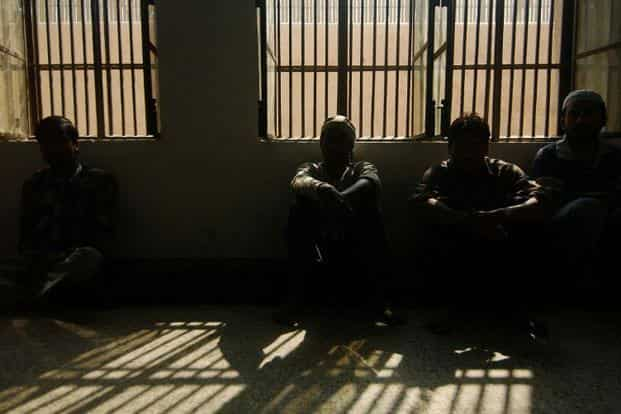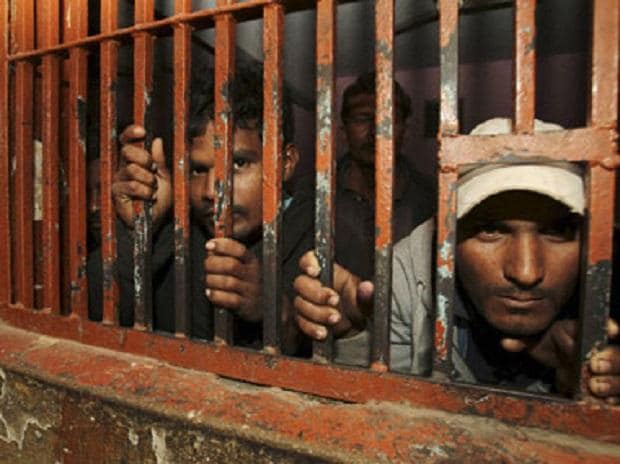Why the justice is delayed to get parole or bail to tribal prisoners in Andhra Pradesh. The criminal administration of justice is hardly blind to the fact that accused from poverty-stricken Scheduled Tribes cannot produce high bail bonds of sureties, unlike affluent sections. And still no relaxation or benefits are provided to the tribals yet.

The plight of the Scheduled Tribes (ST) death row convicts and life convicts languishing behind bars after fourteen years of incarceration is very pathetic. This raises the question: do the tribals have fair and affordable access to justice given the way our present administration of criminal justice functions? As per the reports of Director General of Prisons and Correctional Services of Andhra Pradesh, as of March 2022, at least five ST life convicts have never been let out on parole. Of the total nine ST convicts who have been in prison for the last 14 years, remission was granted only to one inmate. The administration did not grant remission in the case of four ST inmates, while the other four could not even prefer a claim for remission.
The health conditions of the death row convicts and life convicts are far worse. All the nine ST death row convicts and life convicts suffer from either physical or mental ill health. The aim of granting parole is to encourage good conduct of the prisoners. The remission is based on the good conduct of the convicts and work done by them in the prisons.
Sentencing is a judicial function and the granting of parole or remission, ordinarily, is a matter that comes under the exclusive jurisdiction of the State. The State is to exercise its mind proactively and judiciously, and give a reasoned decision to give a final exit passport to the prisoner. This in no way means a truncation of the sentence imposed by the Court.

There are 1,159 tribals who have been put behind the bars as Under Trial Prisoners (UTPs) in Andhra Pradesh. Among these, the tribal families of 422 UTPs are helpless and leading vulnerable lives due to their bread earners being incarcerated in prison without bail. The report also states that out of 424 UTPs who had applied for bail, 291 applications for bail were pending at various trial courts in the State. The remaining 133 accused were unable to get out free from the prison despite bail being granted to them by the courts due to certain reasons.

The criminal administration of justice is hardly blind to the fact that the accused are poverty-stricken Scheduled Tribes. Unlike affluent sections, they cannot produce high bail bonds of sureties which require the production of solvency certificates or furnishing of a cash deposit making it difficult to circumvent the monetary aspect. Most of the STs are docile, unsophisticated and give value to the verbal rather than written documents. They are traditionally governed by their customary law. The tribals who live in the Fifth Schedule Area have the statutory power to customary mode of dispute resolution under the Panchayats (Extension to Scheduled Area) Act 1996 (PESA).
Instead of insisting on property solvency certificates to stand as a surety for the release of the under-trial prisoners, it would be appropriate to direct them to produce the resolution of Gram Sabha or the letter from the community traditional elders agreeing to produce the accused as and when required during the trial of the case. Police have ample power to move the court for cancellation of bail, if the accused violates the order of the court in any case.
While dealing with a bail matter in Moti Ram and others Vs State of MP (1978) and the Hussainara Khatoon and others Vs State of Bihar (1979), the Supreme Court held that “we leave it to Parliament to consider whether in our socialist republic, with social justice as its hallmark, monetary superstition, not other relevant consideration like family ties, roots in the community etc. should prevail for bail bonds to ensure that the bailee does not flee justice.” The Court also recommended the enlargement of accused on bail on personal bond and even without sureties.
Around 87 accused are still behind bars as UTPs while their appeals are pending at the High Court against the orders of conviction. Of the total UTPs, six UTPs died in prison during the pendency of trial, while three inmates are suffering from physical or mental ill health.
A total of 91 ST UTPs have been in remand for more than a year. It is pertinent to mention that the police narrative in the remand and investigation reports usually tends to lead the criminal courts to take a very cautious approach while dealing with the bail applications. There will be very little scope for the defence council to evaluate the version of the prosecution case during the pre-trial stage and seek bail for his client.
The veracity of the truth in the prosecution version will be known to the courts only after completion of the full trial of a criminal case. The wide discretionary power of the courts to deny the bail is also a part of the problem, though the discretionary power of the courts is to be exercised on well settled legal considerations.

The legal precedents of the higher courts affirm that protracted incarceration violates the right to speedy trial and access to justice. The Supreme Court Legal Aid Committee Representing Undertrial Prisoners Vs Union of India (1994) held that undertrials cannot indefinitely be detained pending trial.
Ideally, no person ought to suffer adverse consequences of his acts unless the same is established before a neutral arbiter. In the light of the above facts, it is the responsibility of the State Government to take necessary steps to withdraw the prosecution cases in all the deserving cases pending against the Scheduled Tribes in trial courts.
A special focus on the convicts and undertrial prisoners belonging to ST community is also the need of the hour to ensure speedy and affordable justice to them. #KhabarLive #hydnews








[…] Source link […]
Comments are closed.